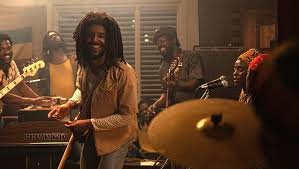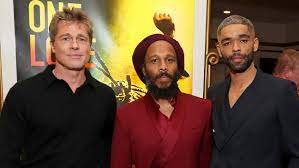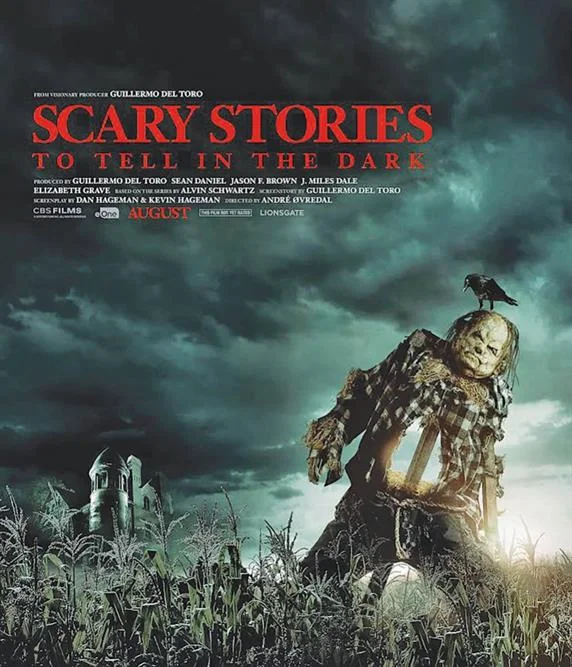Bob Marley: One Love
A very solid, brilliantly acted musical biopic that stands out in a somewhat tired genre. Bottom line: if you like Bob Marley, you’ll love One Love.
Full Disclosure: I’ve been to Jamaica twice on vacation. I’ve smoked more than my fair share of ganja. I love Reggae, and Red Stripe is one of my favorite brews. I even gave a speech in my college public speaking class touting the merits of Rastafari. This obviously makes me one of the world’s leading experts in Jamaican culture.
Like so many stoner white boys in high school, I gravitated to the music of Bob Marley like a moth to the spliff flame. The more I read about the man behind the myth though, the more I came to appreciate Marley as an artist, an activist, and a complex, layered human being. This film manages to encapsulate these attributes while still paying homage to the mythical status he has attained more than four decades after his death.
Review
When I think of Jamaica, I think of Reggae music. When I think of Reggae, I think of Bob Marley. I doubt there’s a person who’s ever lived who represents their country in such a ubiquitous fashion. (Maybe Genghis Khan? But he was not a very nice person.) Bob Marley was, and is, the embodiment of the word “icon”. He put his island nation, his religion, and an entire genre of music on the map.
Without him, would Jamaica be any more than another stop on a Carnival Cruise? Would Reggae have permeated the culture of modern music? Would anyone outside of the religion have ever heard the word “Rasta”? Maybe, maybe not. The point is, Marley is one of the lucky artists who managed to become a legend in his own time; and his legend has only grown since his death from cancer in 1981. With all this said, it’s strange that a biopic of Marley hasn’t been made sooner. That is for the best, though. His surviving family was heavily involved in the production of Bob Marley: One Love… and it shows.
Bob Marley: One Love is anchored by phenomenal performances from its two leads, Kingsley Ben-Adir (left) and Lashanda Lynch (right) as Bob and Rita Marley.
It’s hard to take a man’s entire life and whittle it down to a runtime that is palatable to a filmgoing audience. It’s an even harder task when that man is Robert Nesta Marley. What aspect of his life do you focus on? How do you create a unique cinematic experience and not a paint-by-numbers biopic? Luckily for us, this project was directed and cowritten by Academy Award nominee Reinaldo Marcus Green (King Richard), with industry veterans Terence Winter (The Sopranos, Boardwalk Empire) and Zach Ballin (King Richard, Creed III) as cowriters. Luckily for them, they didn’t have to choose between focusing on the music and focusing on the message, because as Bob would tell you himself, the music is the message.
The music and the message are one and the same, and that forms the beating heart of this movie. Unity, peace, harmony, and above all, love. These are the themes that Marley espoused in his music and life, and it shines through onscreen in the film’s well-paced 104 minute runtime.
Ben-Adir transforms into his subject in a way I’ve rarely seen. There are times throughout the film where I forgot I was watching someone play Bob Marley, and that I was watching the man himself.
Ultimately, Bob Marley: One Love’s greatest strengths are twofold: First, and most obvious, is the heavy use of Marley’s extensive musical catalog. The songs are so catchy, so well-known, and so (fuck it, I’m a fanboy) awesome! Sitting in a Dolby theater, with the seats vibrating to classics like “Jamming”, “Exodus” and “I Shot the Sheriff” was an experience in and of itself, and everyone in the theater was tapping their feet to the rhythm.
Second, and most important, were the powerhouse performances by the film’s two leads. Kingsley Ben-Adir blew my mind in his role as the titular character. Usually in films like this (even if done well), I sit and scrutinize how the actor and the musician they’re portraying are different. I think to myself, “Is Joaquin Phoenix playing a believable Johnny Cash?” “Is Rami Malek trying too hard to embody Freddie Mercury?” “Is Austin Butler ever going to lose that Elvis accent?” Too often, these films are obviously “Oscar-bait”. This was not the case for me while watching One Love. Ben-Adir seemed to channel the very soul of Bob Marley, to the point where I sometimes forgot I watching a movie, but instead transported to some alternative world where I was watching lost HD footage of Marley himself.
Bob’s beleaguered, yet unwaveringly loyal wife, Rita, is played with equal gravitas and pathos by Lashana Lynch. The chemistry between the two actors is palpable. Rita is the only one of Bob’s inner circle who can check him; who can hold a spiritual mirror to his face and bring him down to earth when he’s lauded as a saintlike figure by everyone who surrounds him. The scenes between the two are nothing short of spellbinding.
Spoilers Ahead
Bob Marley & the Wailers cooking up their next hit in the studio.
Thankfully, Bob Marley: One Love is not your run-of-the-mill episodic biopic. When given the reigns to a true story, it’s all too easy to present a movie that consists of “This guy was born, this happened, then this happened, and after that, this happened, then he died. The end.” The filmmakers here decided to present a cohesive message, rather than a series of events. Rather than tell a linear story about Marley’s life and death, they decided to focus primarily on a five-year period between 1975 and 1980.
Although there are frequent flashbacks to Marley during various stages of his life, these scenes manage to serve the overlying narrative, rather than being standalone cutaways. (I would be remiss not to mention the performance of actor Quan-Dajai Henrique, who plays teenage Bob. He was incredible in the few scenes he was in.) In their approach, the filmmakers sought to convey the essence of Bob Marley, the artist and the man, rather than give us a bland history lesson.
Bob Marley: One Love is produced in part by Brad Pitt’s (left) Plan B Entertainment. Pictured as well are Bob’s son Ziggy (center) and star of the film Kingsley Ben-Adir (right).
Despite my seemingly endless praise, Bob Marley: One Love does fall victim to a few of the pratfalls that are found often in the genre of musical biopics. Mainly, and most frustratingly, is Hollywood’s repetitive belief that every iconic song in pop music history is produced on a whim in one jam session. I mean, I get it. I really do. Movies can only be so long, and every minute is critical, but does this device need to be used in every film about a musician?
In the film, one of Marley’s most well-known songs, “Exodus” is written, composed, and arranged in a single scene. Hollywood uses this as a shortcut to A: save time, and B: showcase the brilliance of the artist they’re depicting. It happened in The Doors, Bohemian Rhapsody, Straight Outta Compton… You name a music movie, it has that scene. It was even parodied to great comedic effect in the criminally underrated Walk Hard: The Dewey Cox Story. The thing is… These scenes are always cool. “Wow! Look how this amazing hit song just came together!” It just bumps me as a cinephile.
Having Bob Marley’s family so involved in the production on the feature may have also resulted in glossing over some of Bob’s darker side in favor of preserving his legacy. Granted, Rita calls Bob out for his multiple affairs, and his violent outburst against his manager is a low point for the Bob Marley character in the film, but these moments only serve to make Marley a human, rather than a saint. It hardly diminishes his status.
5 Quick Hits
First off, fuck Rotten Tomatoes. I know they’re our primary rival, (we only have a few hundred million fewer followers than them but still…) but to give this film a 43% is a crime against filmmaking. The good news is that Jah people have spoken. It has an audience score of 94% and it broke the box office record for a Valentine’s Day opening.
I don’t know if this intro was for every release of the film, but before the movie began, Ziggy Marley appeared onscreen and thanked us for coming. I thought that was really cool and it set the tone for what we were about to see.
There were two scenes that made me misty-eyed. When Bob played “Turn Your Lights Down Low” for Rita, that was a magical scene. Near the end, when Bob started playing “Redemption Song” and his whole family started gathering around him one by one, I nearly lost it emotion-wise. Two very powerful scenes.
Man, that compound that Bob was living in was so easy to infiltrate, wasn’t it? The dude that shot him initially walked right up into the house and let off twenty rounds or so. A few years later, the same dude, wearing the same outfit, walks right through the godamn gates. Dude! Bob! Stop letting your bodyguards smoke so much friggin’ ganja mon!
I’m glad they didn’t show Bob’s descent into poor health after his cancer diagnosis. It would go against the message of the film. In the hearts and minds of Bob’s fans, he lives forever.









